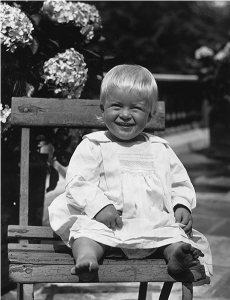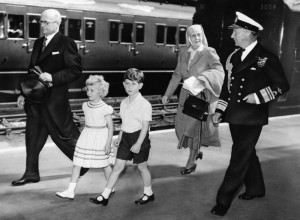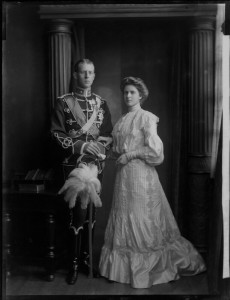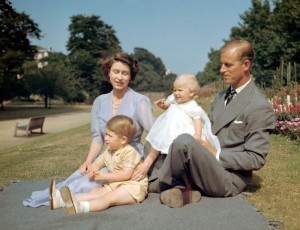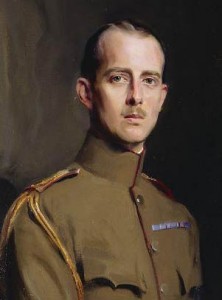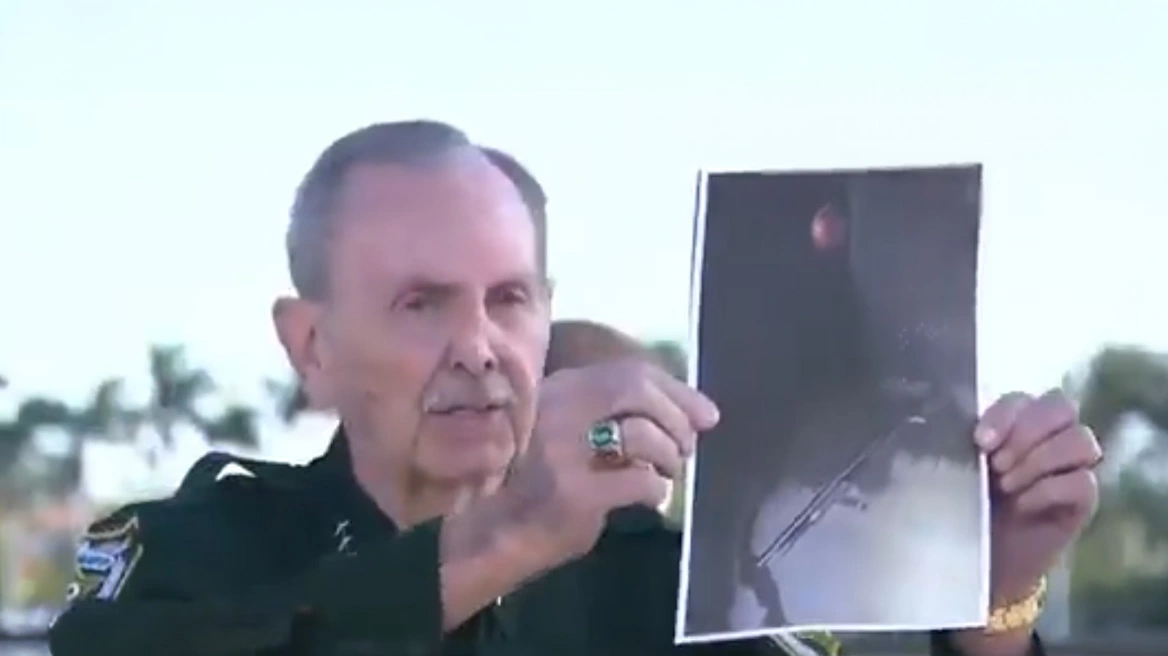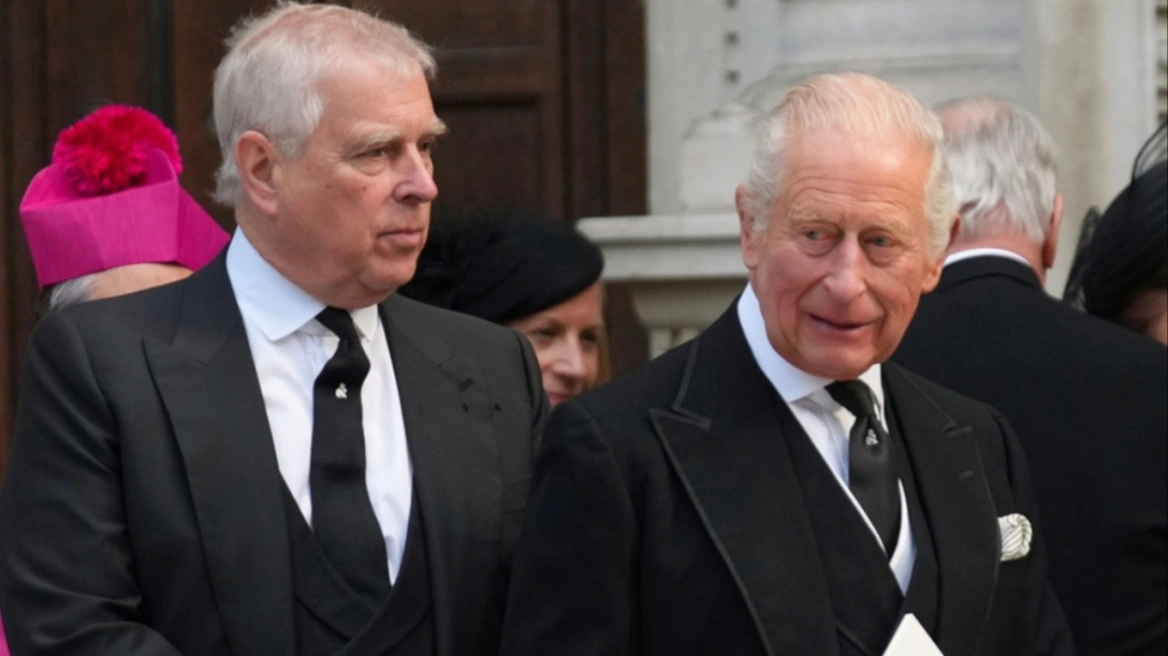When Prince Charles said that Greece is in his blood upon his first official visit to the country, he was not talking metaphorically as both his father and grandfather were born in Greece.
(Prince Philip at Mon Repos Palace in Corfu circa 1921-1922)
The grandfather of the Prince of Wales, Prince Andrew of Greece and Denmark, was born at Tatoi Palace, in the outskirts of Athens in 1882. His father, Prince Philip, the Duke of Edinburgh, was born in Corfu, at Mon Repos Palace in 1921.
Prince Charles has visited Greece several times, but always privately. He has visited Mount Athos a few times, while he often enjoys his summer vacations in the Greek seas. Last summer, for instance, he took a mini cruise in the Ionian with his wife Camilla, Duchess of Cornwall.
(Prince Charles with his grandmother Princess Alice and sister Princess Anne in England, 1955)
Charles’ grandparents and Greece
Prince Andrew of Greece and Denmark (1882-1944) was the seventh child and fourth son of King George I of Greece and Olga Constantinovna of Russia. He was the grandfather of Charles.
Prince Andrew was an officer in the Greek army and served in the Balkan Wars (1912-1913). In 1913, his father was assassinated and Andrew’s elder brother, Constantine, became king. Constantine’s neutrality policy during World War I led to his abdication, and most members of the royal family, including Andrew, were exiled.
On the royals’ return a few years later, Andrew fought again in the Greco-Turkish War (1919–1922), but the war went badly for Greece, and Andrew was blamed, in part, for the loss of Greek territory.
The court-martial was about to sentence him to death for the losses but General Theodoros Pangalos intervened and saved him, on the grounds of his “great inexperience of commanding upper ranks”. He was exiled for the second time in 1922, and spent most of the rest of his life in France.
(Prince Andrew of Greece and Denmark, and Princess Alice of Battenberg, grandparents of Prince Charles)
Prince Andrew was estranged from his wife, Princess Alice, but never got a divorce. He spent the rest of his life in Monte Carlo and died on Dec. 3, 1944 from a heart attack. His body was transferred to Greece and buried in the royal cemetery at Tatoi.
Charles’ grandmother, Princess Alice of Battenberg (1856-1969), was diagnosed with schizophrenia and committed to a sanatorium in Switzerland, thereafter living separately from her husband. Allegedly, Princess Alice believed that she possessed healing powers and that she had come into erotic contact with Jesus Christ.
After her recovery, she returned to Greece in 1938 where she devoted most of her remaining years to charity work. She stayed in Athens during World War II, sheltering Jewish refugees. She was also responsible for the management of many orphanages and clubs, doing valuable social work during the German Occupation.
In 1949 Princess Alice moved to Tinos to establish a monastic brotherhood, even trying to build a monastery. From then on she was wearing nun clothes until the end of her life in 1969.
Britain’s Princess Elizabeth, later Queen Elizabeth II, Prince Philip and their children Prince Charles and Princess Anne, London, 1951. (AP Photo/Worth)
The parents of Prince Charles who never visited Greece
Queen Elizabeth II and Prince Philip, Duke of Edinburgh, have visited almost 200 countries and all EU countries. Except for one: Greece. In all the 66 years of their reign, they never visited Greece, not for one day. This is especially noteworthy given the fact that Prince Philip was born in Corfu, Charles’ father, was born in Greece and his grandfather, King George I, was the longest-ruling King in Greece.
The answer is very simple: Queen Elizabeth definitely feels an aversion to a country that drove her kings away and even sentenced Prince Andrew, Philip’s father, to death, regardless of the fact that Prince Andrew was not executed but exiled.
(Prince Andrew)
Surely then, Prince Philip feels a dislike for the country. On the other hand, he only lived in Greece for one year as an infant, as his family was exiled in 1922.
Also, Prince Andrew and Princess Alice were two highly controversial personalities, with his mother never offering him the security a family gives to a child.
Prince Philip needed a father, there was no one there. He lived a very lonely childhood. His parents’ marriage broke up when his mother was diagnosed with schizophrenia and later she dedicated herself to God.
As a consequence, the young prince grew up with relatives and constantly changed schools. His relatives may have cared for his education, but never offered him the emotional support he needed.
Source: Philip Chrysopoulos/greekreporter
Ask me anything
Explore related questions

